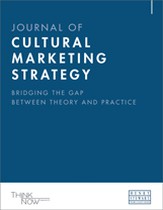An evaluation of AT&T social marketing delivery modes aimed at teen smartphone use while driving
Abstract
Effective social marketing to teens may contribute to reducing the likelihood of death behind the wheel. This study examined whether the virtual reality (VR) technology utilised as the primary messaging delivery mode in AT&T’s ‘It Can Wait’ social marketing campaign has had any impact on teens’ beliefs and behaviours regarding smartphone use while driving. Students’ beliefs and behaviours were evaluated using Ajzen and Fishbein’s theory of planned behaviour (TPB). The study also evaluated whether any TPB construct scores were predictors of behaviour intentions, and whether behaviour intentions, perceived behaviour control and type of AT&T delivery modes were predictors of future smartphone driving behaviour, and finally, determined teen preference for one type of social marketing delivery mode. The study found that the type of delivery mode did not significantly change the TPB construct belief scores. However, when comparing VR, video and PowerPoint lecture delivery modes, teens displayed a significant preference for VR social marketing. Teens’ TPB normative beliefs, attitude beliefs and perceived behaviour control beliefs associated with smartphone use while driving were predictors of behaviour intentions, and behaviour intention scores were a predictor of future driving behaviour.
The full article is available to subscribers to the journal.
Author's Biography
Francene Scott Diehl is Director of Safety and Compliance for Chesapeake Utilities Corporation. She received her PhD in safety sciences from the Indiana University of Pennsylvania; her master of public health degree from the University of South Florida; and her bachelor of science degree in engineering and technology (occupational safety and health concentration) from Murray State University. Dr Diehl has 25 years of professional safety experience and has presented at many national safety industry events.
Luz Stella Marín is an Assistant Professor in the Department of Safety Sciences at the Indiana University of Pennsylvania. She received her doctoral degree in occupational ergonomics and safety from the University of Massachusetts Lowell. She has conducted research with a focus on injury prevention, disparities among Hispanic construction workers, perceptions of safety climate, and exposure to whole-body vibration. She has more than 10 years’ experience as a safety engineer in a wide array of industrial sectors.
Majed Zreiqat is an associate professor at Indiana University of Pennsylvania (IUP). He has a doctor of philosophy degree in occupational safety and health from West Virginia University with minor in applied statistics; an MS in safety sciences from IUP; and a BS in chemical engineering from the University of Jordan. His areas of expertise are in ergonomics and human factors. His research interests lie in occupational safety with a focus on work-related musculoskeletal disorders.
